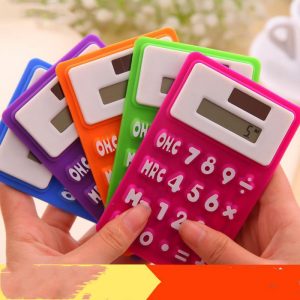We often use calculators in our life and study, so do you know what issues should be considered when buying a calculator? Let’s take a look at it together.
1. Choose according to the usage scenario
The same kind of calculators are suitable for different scenarios. For example, calculators used for teaching are mostly advanced calculators with very complex functions.
2. Calculators used in daily life are ordinary calculators, with only simple functions such as addition, subtraction, multiplication, and division. They are cheap, convenient and practical.
3. Choose according to the design of the calculator
Because the frequency of using calculators in daily life is particularly high, when choosing a calculator, you should pay attention to whether the layout of the calculator’s keys is reasonable.
4. Especially the main buttons of the calculator, such as “add, subtract, multiply, divide and equal sign”, these buttons should be very eye-catching, so that when using the calculator will be faster.
5. Choose according to the number of digits
The so-called digit is the number of digits that can be displayed on the calculator’s screen. The more digits that can be displayed, the more powerful the calculation function and the higher the maximum value that can be calculated.
6. Choose according to calculation speed
The calculation speed of a high-quality calculator is very fast. The calculation result will be displayed on the screen at the moment you press the equal sign key, while the calculation speed of a poor-quality calculator is relatively slow.
7. Consider the quality of the calculator
Observe whether the workmanship of the calculator is flawed, whether it can be quickly returned after the button is pressed, and whether the display is defective. If there is, do not buy it.














